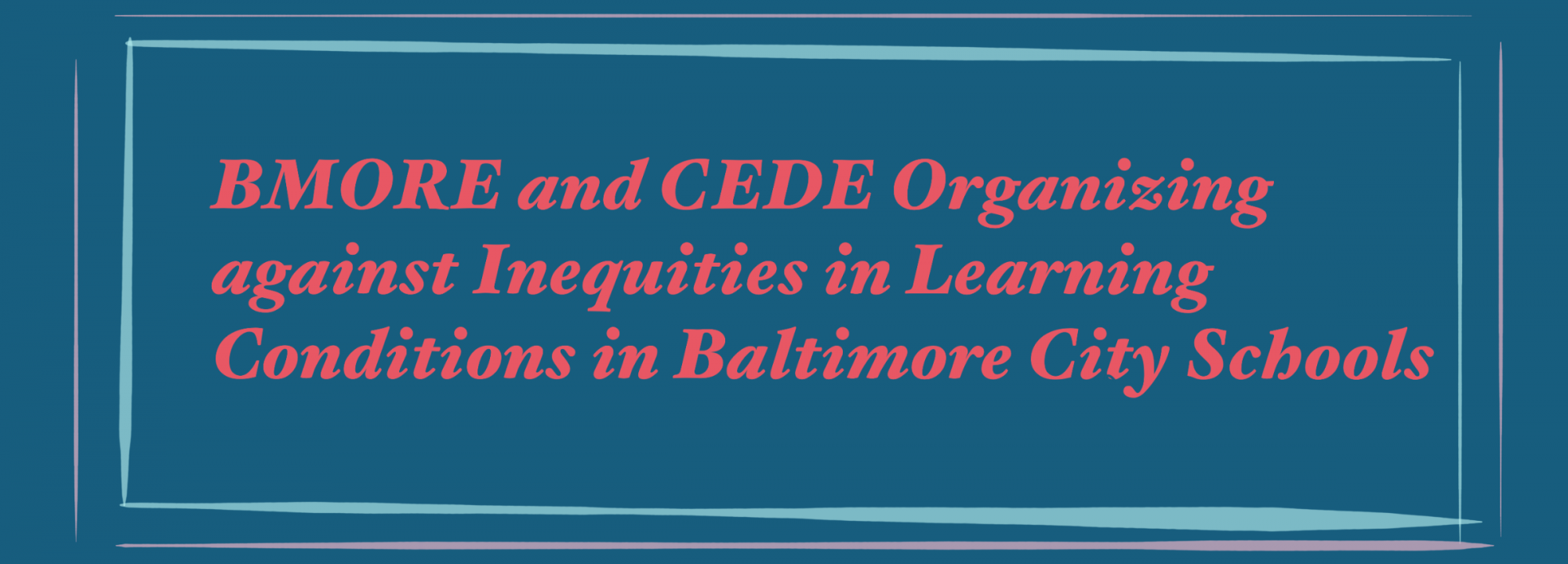The Baltimore Movement of Rank-and-file Educators (BMORE) and the Caucus of Educators for Democracy and Equity (CEDE) embrace not only the frameworks of Ella Baker’s participatory democracy and social justice unionism. This is particularly apparent in their ongoing alliance with one another, a grounding principle of social justice unionism (Social Justice Unionism 2020). Their working together on not only this issue, but other issues allows them to properly mobilize and use their “people power,” something that Ella Baker’s tradition of participatory democracy prioritizes (Mueller, 2004). Additionally, both of these caucuses focus on broader issues that are in the interest of their members and, consequently, the students that the members of the caucuses are serving. For instance, tackling how BCPS handles extreme weather conditions and their effects in schools is just one step in fighting against the old and failing infrastructure of the school system and, broadly, the lack of appropriate funding to Baltimore City schools. It is the necessity of more school funding that allows for the ability to remodel the school buildings and provide appropriate resources to the schools that need them the most. Baltimore City Public Schools is a mostly urban school system, serving a majority of black and brown students. It is not a coincidence that this is a school system that is neglected. This brings about another broader issue that BMORE/CEDE are fighting against which is systemic racism and its implications in, outside, and around BCPS and its relationship with the Maryland State government.
I believe this relationship between local and state governments and urban school systems is not unique to BCPS. This is something that I not only found to be apparent in my research, but in my own experiences as an urban student, especially in the BCPS system. Learning about BMORE and CEDE was extremely eye opening to me as I did not know of their existence until I began this project. That is a testament to how grassroots organizations can work, where they are less publicized, but still create structural change in the community. The organizing that I am familiar with seeing for schools, particularly school funding, came from the Baltimore Algebra Project which is a grassroots organization that aimed to help students with math. This organization held a walk-out for students during my senior year of high school because of the budget cuts that were announced by Governor Hogan that year. The Baltimore Algebra Project was also mostly youth and student led, leading to a larger amount of publicity. Perhaps that is another marker of difference, where student and youth led organizations tend to be publicized more because of our ability to appeal to a broader and more diverse audience which is other young people. BMORE and CEDE face the issue of being an adult-led organization that doesn’t necessarily retain as much publicity, but has more power because of member dues and their connections to the Baltimore Teachers’ Union.
I think this project has helped me to really understand the issues that I had been witnessing in my schools. This has also led me to reflect on who is working and how they are working toward deconstructing the American public education system. Looking at frameworks like social justice unionism and participatory democracy forces me, and other researchers and stakeholders, to see where we need to pay further attention, especially in regards to urban schools. The issues that grassroots organizations with a focus in education reform and overhaul not only tell the needs of the students but also the teachers, paraprofessionals, and other employees. The employees of our school systems, from the lowest level to the highest level, are who keep the schools running, not the school board. Without BMORE and CEDE, there would have been no change made to the handling of extreme weather conditions. And without teachers and other employees exposing these issues on social media, BMORE and CEDE would not have been able to create such impactful change. Social justice unions need their members and school communities to be effective and need to fully involve both of these groups so that problems are addressed and conditions are improved.
